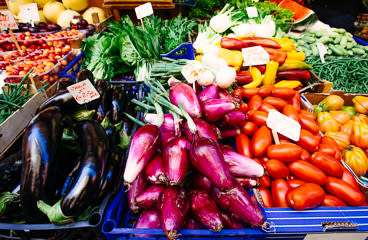Overview

Fecal incontinence is the loss of normal control of your bowels. You may not be able to reach the toilet in time for a bowel movement. Or stool may leak from your anus.
This problem can be caused by constipation or diarrhea. Anxiety or other emotional stress can be a cause too. It can also result from nerve injury, muscle damage (especially from childbirth), lack of exercise, or poor diet.
What you eat can help you manage fecal incontinence. Which foods you eat or avoid may depend on why you have the problem.
Follow-up care is a key part of your treatment and safety. Be sure to make and go to all appointments, and call your doctor if you are having problems. It's also a good idea to know your test results and keep a list of the medicines you take.
How can you care for yourself at home?
- Keep a food diary of what you eat. This can help you find out which foods may help or cause this problem.
- Eat small, frequent meals.
- If you and your doctor feel that constipation is part of the problem:
- Include fruits, vegetables, beans, and whole grains in your diet each day. These foods are high in fiber.
- Drink plenty of fluids. If you have kidney, heart, or liver disease and have to limit fluids, talk with your doctor before you increase the amount of fluids you drink.
- Get some exercise every day. Build up slowly to 30 to 60 minutes a day on 5 or more days of the week.
- Take a fiber supplement, such as Citrucel or Metamucil, every day. Read and follow all instructions on the label.
- If you and your doctor feel that diarrhea is part of the problem, try to avoid:
- Alcohol.
- Caffeine. This is found in coffee, tea, energy drinks, cola drinks, and chocolate.
- Nicotine, from smoking, vaping, or chewing tobacco.
- Gas-producing foods. These include beans, broccoli, cabbage, apples, and whole-grain foods.
- Fiber supplements, such as Citrucel or Metamucil.
- Dairy products that contain lactose (milk sugar). Examples are ice cream, milk, cheese, and sour cream.
- Foods and drinks high in sugar, especially fruit juice, soda, candy, and other packaged sweets (such as cookies).
- Foods high in fat. These include bacon, sausage, butter, oils, and anything deep-fried.
- Sorbitol and xylitol. These artificial sweeteners are found in some sugarless candies and chewing gum.
Current as of: October 19, 2024
Author: Ignite Healthwise, LLC Staff
Clinical Review Board
All Healthwise education is reviewed by a team that includes physicians, nurses, advanced practitioners, registered dieticians, and other healthcare professionals.

